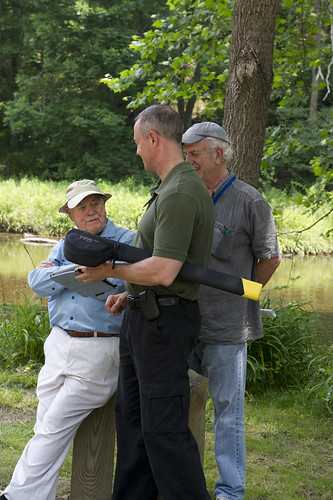Fishing is an old hobby; people thousands of years ago enjoyed going fishing. Fishermen revel in nature and love anticipating that first nibble. There are lots of new ideas regarding fishing, some of which may be better than things you have done in the past. The tips here can teach you how you can build and improve your fishing strategies.
Try casting close to shore if your fishing trip takes you to a river or lake. Fish like shallow waters, as they’re easier to find food in, so you’re more likely to get a bite there as well. However, when you cast near the shoreline, you must be careful not to tangle your line in weeds or debris.
Most night fisherman use lighted bobbers. A lighted bobber contains a bulb that will help you see that a fish is caught. The bobber goes up and down when the fish begins to nibble at the bait.
If you are fishing from a boat, be sure to dry the deck of the boat as much as you can before casting your line. You certainly don’t want to fall and possibly injure yourself. Dry the boat’s floor with a mop before you venture onto the water.
Prior to taking your boat out to fish, ensure that the floor of the boat is as dry as possible. However, slipping in a wet boat can be especially dangerous with all of the sharp tools, and the risk of falling overboard. Dry the surface with a towel or mop prior to going into the water.
You should know the weight capacity of your boat before you make the trip to your fishing spot. If you overload the boat, it’ll tip. You don’t want to lose your supplies, or your life, in deep water. Keep your load to a weight which is far from the capacity of the boat to ensure you stay safe on the water.
Keep quiet while fishing. Loud noises often spook fish quickly. By keeping your voice down and being quiet, fish are more likely to be lured in.
When fishing during cold winter months, always use sinkers. By adding extra weight to your line, the bait will go deeper into the water. Fish like to stay in deeper, warmer water during winter time, so you’re more likely to catch something if you use a sinker. The amount and size of the sinkers that are placed on the line is dependent upon the water’s depth.
If you are out deep sea fishing, you should look out for indications of fish close by. Keep an eye out for wood debris or submerged foliage. Large fish often like to congregate near these items. A place where seagulls are feeding on small fish is also promising. There are often bigger fish lurking further down in such spots.
Make sure your line is wet before tying a knot. This reduces friction on the line, making it easier to tie a knot at all, as well as strengthening the knot you tie. Many professionals prefer to use the double fisherman’s knot or the popular clinch knot.
Pay attention to the wind while you’re fishing. If it is windy, fish will more than likely follow the current and end up on one side of the lake. The normal technique is to cast into the wind. If it is extremely windy, then larger fish are most likely to lurk in the depths where they are hard to catch.
Give fly fishing a try! Though fly fishing is different than other fishing methods, there are many benefits to learning how to do fly fishing. If you are interested in this type of fishing you will need a completely different set of equipment including: lures, rods, and even the types of clothing that you wear!
Check the weather report before you head out the door. If you don’t bother to check the weather, you may get an unpleasant surprise. It’s possible you may get stuck in a difficult situation if the weather should happen to turn nasty. So be safe, and check your weather forecast before going on a fishing adventure.
Fishing has been a great pastime for thousands of years and will continue to be for many more. Take the tips in this article, and bring them along on your next fishing trip. Try a new trick each day and you might be more successful at fishing for it!

